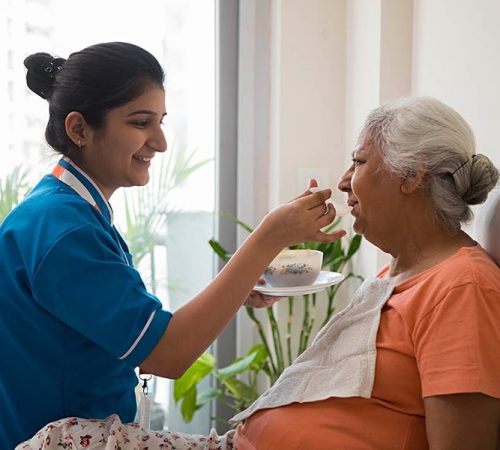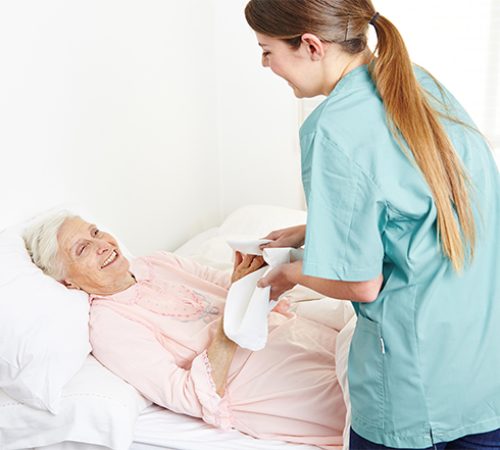Get Bed Ridden Patient Care
Caring for a bedridden patient at home requires compassion, patience, and knowledge. Whether you’re a family member, a friend, or a professional caregiver, understanding the unique challenges and providing the necessary support is crucial. In this guide, we will explore various aspects of bedridden patient care at home, offering practical tips, essential considerations, and resources to ensure the well-being and comfort of your loved one.


Get The Best Bed Ridden Patient Care At Home
Understanding Bedridden Patients: a. Definition and Causes: Explaining what it means to be bedridden and common reasons leading to this condition. b. Medical Considerations: Discussing underlying health conditions and complications that bedridden patients may face. c. Emotional and Psychological Impact: Highlighting the psychological challenges faced by bedridden individuals and ways to provide emotional support.
Setting Up the Environment: a. Bed Selection and Positioning: Choosing the right bed and optimizing its position for maximum comfort and accessibility. b. Safety Measures: Identifying potential hazards, implementing fall prevention strategies, and ensuring a secure environment. c. Equipment and Assistive Devices: Listing essential aids such as bed rails, commodes, and transfer hoists to facilitate patient care.
Personal Care: a. Hygiene and Bathing: Providing guidance on maintaining proper hygiene, bed baths, and strategies for hair and oral care. b. Skin Care: Emphasizing the importance of regular repositioning, managing pressure sores, and addressing skin health. c. Managing Incontinence: Offering practical advice on dealing with urinary or bowel incontinence and utilizing appropriate supplies.
Nutrition and Medication: a. Dietary Considerations: Discussing the importance of a balanced diet, addressing swallowing difficulties, and exploring nutritional supplements if necessary. b. Medication Management: Outlining strategies for organizing medications, administering them correctly, and coordinating with healthcare professionals.
Mobilization and Exercise: a. Range of Motion Exercises: Demonstrating gentle exercises to maintain joint flexibility and prevent muscle stiffness. b. Physical Therapy and Rehabilitation: Exploring professional assistance options to enhance mobility and prevent further complications.
Emotional Support and Mental Stimulation: a. Social Interaction: Highlighting the significance of companionship, engaging conversations, and creating opportunities for interaction. b. Activities and Entertainment: Suggesting mentally stimulating activities, such as reading, puzzles, or listening to music, to promote well-being.
Caregiver Self-Care: a. Avoiding Burnout: Providing tips for managing stress, seeking respite, and utilizing support networks. b. Seeking Professional Help: Discussing when it may be necessary to involve professional caregivers or healthcare services.
Conclusion: Caring for a bedridden patient at home requires dedication, knowledge, and adaptability. By understanding the unique challenges, implementing proper care protocols, and providing emotional support, you can create a nurturing environment for your loved one. Remember to prioritize your well-being as a caregiver, seeking assistance when needed, and celebrating small victories along the journey of caring for a bedridden patient at home.
Our Core Value
We seek always to create
& deliver value for you.
01. Our mission
To deliver best in class personalized health care services at home.
02. Our Vision
To be the best community of home health care service provider in India
03. Integrity
We act in an honest and ethical way at all times.
Contact Us
Stay in touch with us to get our services and special offers.
Address
F-82/5, Third Floor, Sadh Nagar, Solanki Chowk, Palam Colony, New Delhi 110045
Call Us
+91 9999552193 , +91 9999552192
Email Us
carevivehealthcare@gmail.com

